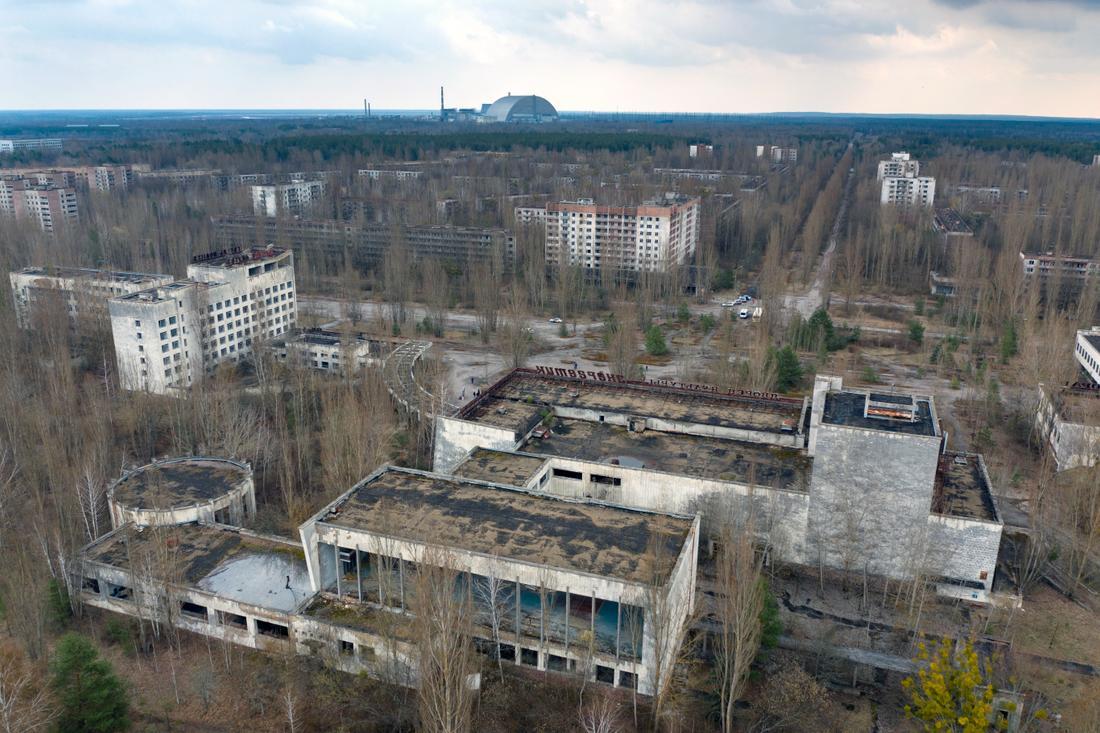One of the concerns of the Directorate for Radiation Protection and Nuclear Safety (DSA) was precisely that there would be a power outage at the decommissioned nuclear power plant in Chernobyl.
–
Now is is the nuclear power plant hit by a power outage which creates a risk of increased radioactive radiation, according to the operator in Chernobyl.
– One of the concerns we had was precisely that there could be a power outage. There is no immediate danger, but we are concerned, says Astrid Liland, department director for emergency preparedness in DSA to VG.
The Directorate has regular contact with the Ukrainian authorities and contact persons in Ukraine, with whom they have had a standing job for many years. From the contacts in Ukraine, they have also received reports of the power outage, she says.
This is one of the things the DSA has informed about in a meeting of the crisis committee for nuclear preparedness on Wednesday.
– We have had a meeting in the crisis committee for nuclear preparedness where we gave a brief about the situation for the members who are there, and expressed our continued concern that something could go wrong in Ukraine, says Liland.
The crisis committee consists of the Armed Forces, the Norwegian Police Directorate, the Norwegian Directorate of Health, DSB, the Norwegian Food Safety Authority, the Norwegian Coastal Administration and the Ministry of Foreign Affairs.
This is what they are worried about
What the DSA is concerned about is the potential release of radioactive substances from Chernobyl if the power plant is unable to cool down spent nuclear fuel after the power connection has been cut off.
At the warehouse where fuel is used, there is a need for this to be cooled in a water pool. If it is not cooled down, the temperature in the water will be able to rise without pumps that can supply new water.
– Over time, the cooling water will then evaporate away, and then there may be a fire as the warehouse. But it will only be in a long time. There is no immediate danger right now that it will happen – but the fact that they then do not have electricity is always a serious danger signal, says Liland.
In the event of problems with cooling the system, it will be possible to release radioactive discharges into the environment. But Liland also points out that there are diesel generators at the plant.
Said reservegeneratorene has Ukrainian authorities stated that will hold for 48 hours before the cooling of spent nuclear fuel is stopped.
– Then they are dependent on whether they get more diesel or not to these diesel generators to be able to have electricity. It is important for both cooling and ventilation, says Liland.
Potential for discharges over larger areas
Should the diesel supply end without there being access to electricity, it will in any case take some time before the water eventually evaporates.
– Then of course you have some time to get new diesel for the plant or try to repair the power supply to prevent it from going wrong, says Liland.
– How serious would it be if a fire broke out?
– There are very large amounts of radioactive material stored there, and then there are uncertainties about how such a possible fire would proceed or how large the discharge would be. But there is clearly a potential for radioactive discharges that can be transported over larger areas, at the same time there is not the same type of danger potential as an operational nuclear power plant.
Around 210 technicians and locally employed security guards have been at work in the decommissioned nuclear power plant for almost two weeks without stopping because it has not been possible to send in new shifts after Russia seized control of the facility on 24 February.
The Russian Foreign Ministry claims that Chernobyl is now under “joint control” of Russian forces, the National Guard and Ukrainian specialists.
“As the owner of a developed nuclear industry, Russia is aware of the potential risk to nuclear infrastructure, and is doing everything in its power to ensure the proper security of Ukraine’s nuclear facilities,” said Maria Zakharova, a representative of the Russian Foreign Ministry, according to the Russian state news agency. TASS.
DSA’s most important task is to monitor the situation, and ensure that strategic and political leadership receive the information they need.
Read more about what scenarios DSA plans for, and how they work, in this case.
–


